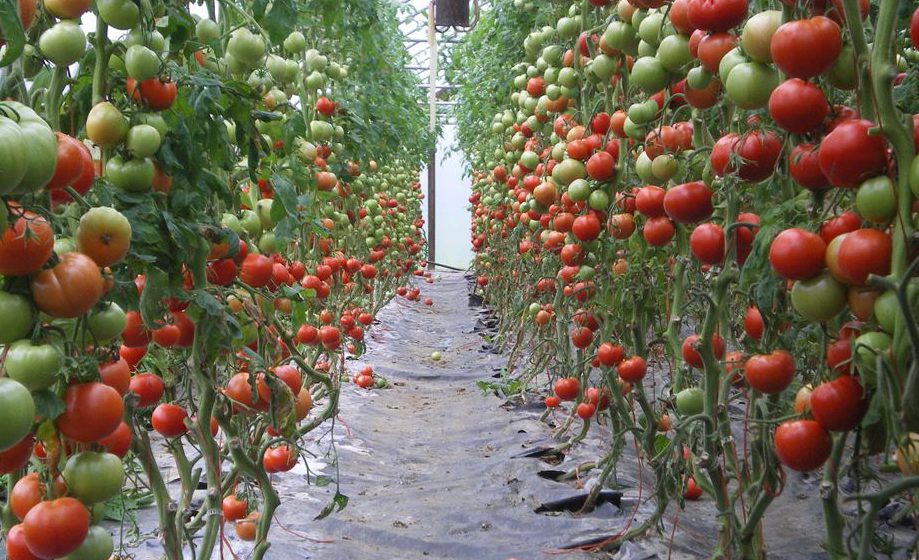
Richard Wiswall has been a farmer for 35 years. He runs Cate Farm, a certified organic farm in Vermont and is author of “The Organic Farmer’s Business Handbook.” Richard’s experience as a farmer is sure to resonate with all farmers who strive to manage their farm profitably. We are pleased to announce that Richard will be the keynote speaker at the Panhandle Fruit and Vegetable Conference in Marianna, Florida, on October 11, 2016.
Richard’s 148-acre farm includes 25 different types of crops on 22 acres of cultivated land and seven 96-ft long greenhouses. When he started he owned only 5% of the land he farmed, and he decided to take a dive into the reality of his business. He had to overcome the fear that many small, diversified farmers have: Is my farm profitable or am I losing money here? First, he realized he needed to collect some data from his operation to understand how profitable it was. Later, during the off-season, he sat down and looked at the numbers for three days. The hard work paid off! He realized that there were some crops that were very profitable and he was losing money on others. After this realization, he decided to reduce the number of crops grown from 42 to 25 the following year. He focused on the most profitable crops, he finally saw how his farm could be profitable and viable in the long term. This gave him the confidence to go to a bank and ask for a loan to buy the land he farmed. He has been fine tuning his production strategy every year, and has observed consistent improvements.

In this process, Richard found that crops with high demand such as spinach, broccoli and sweet corn were not profitable at his farm. On the other hand, there were “sleeper crops,” such as kale, that were earning more money per acre than standard vegetable crops. Richard said this was the reality for his farm, but it would be different for other farms. “For those crops that are not profitable you can either drop them or you can still grow them even when you are losing money, as long as you are aware of it. You can look at this as a promotional expense,” he said.
Richard realizes that looking at the business side of things is hard for many farmers who chose this profession to be outside working with nature. He decided to write a book to share his experiences with other farmers, and that’s how “The Organic Farmer’s Business Handbook” got published. Richard regularly speaks on this topic at conferences and events across the country. “It’s about shining a light on their farm business, about understanding where the money is coming and going,” he said. “After that it is up to them to make decisions. It’s better to do it with your eyes open than with your head stuck in the sand.”

Richard has seen many farmers work 80 hours a week, pay their workers little, and not get ahead. “They will never say this is what I want to do the rest of my life. They leave farming all together, they burn up”. To be truly sustainable you have to have a manageable, balanced life. Ultimately a farmer’s only job is to make sure that the farm survives; if you can’t make payroll then it’s over.” he said.
Applying Richard’s methods to analyze your farm requires some dedication. As a first step, he recommends to analyzing your five top crops. “I don’t like recordkeeping”, Richard says, “I do it because it has worked. The only thing you have to do is to calculate rate checks. How much time it takes to plant a bed, weeding, and the like, you don’t have to track every time”. Richard recommends looking into Phone apps such as BeetClock http://www.beetclock.com/ to use your smartphone to facilitate recordkeeping.
Besides the keynote speech, Richards will also lead a 2-hour workshop in the afternoon of the conference. In this workshop titled “Determine Your Costs of Production: Farm Budgets Made Simple,” he will work on demystifying this process for you. “You will learn to do this anytime you want. We’ll spend two hours simplifying this process and the hope is that farmers will embrace and practice this in their operations,” he said.
To learn more about Richard Wiswall and Cate Farm visit www.richardwiswall.com and www.catefarm.com.
The Panhandle Fruit and Vegetable Conference will provide a great networking space and share practical farming knowledge that can help farmers across the region. The event will take place on October 11 at the Jackson County Agricultural Complex in Marianna, Florida.
For more information and registration visit: https://pfvc.eventbrite.com
Early bird registration is $40 before September 6. Your registration includes lunch, refreshments, educational materials and transportation to farm tour locations. We look forward to seeing you there!
 0
0
